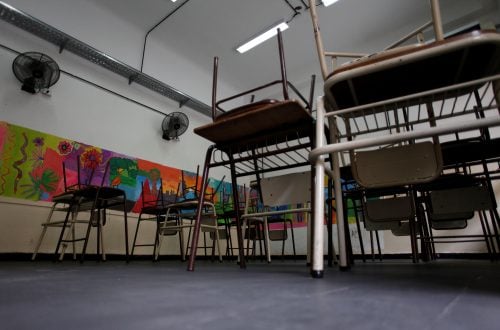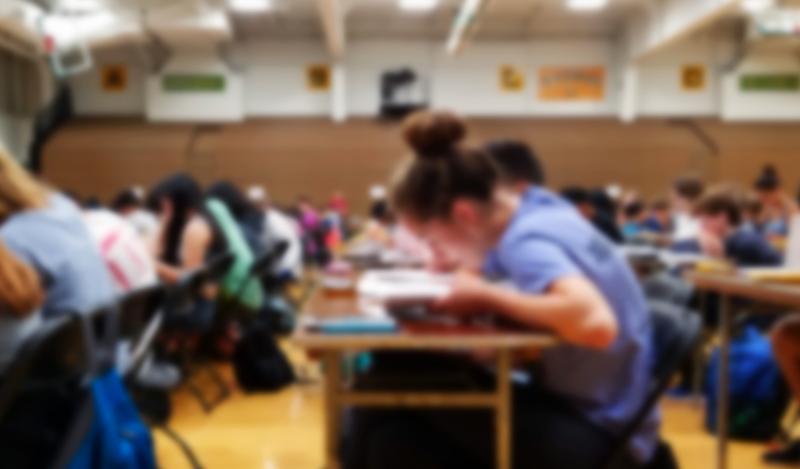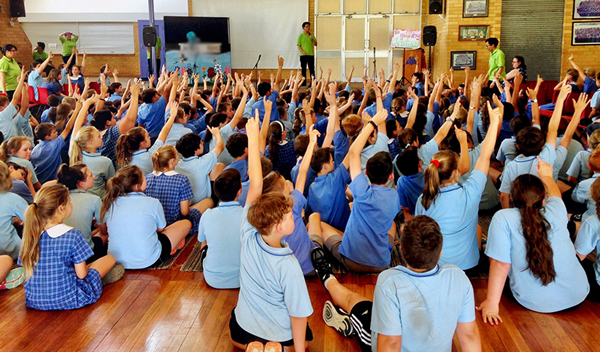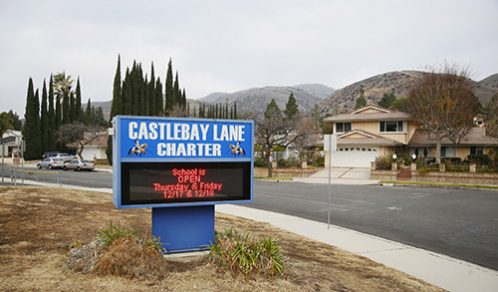Custom-Built for Student-Athletes, This School Emphasizes Both
August 25, 2023
IMG Academy, founded in 1978 in Bradenton, Fla., may be one of the nation’s more fascinating and less well-known private schools. A residential academic and sport-focused school serving grades 6–12, it trains student-athletes in nine sports with a focus on preparing many for college and even professional athletic careers. In 2022, the school launched IMG Academy+, an online coaching tool connecting student-athletes everywhere with the school’s training and coaching staff. I first learned about IMG Academy a number of years ago and have always been intrigued. So, I was pleased when I recently got the chance to talk with Michael Lehan, the head of school at IMG Academy since 2021, about their work. Lehan is a former college and pro athlete who played six years in the NFL and is a veteran school and system leader who was named 2020 Principal of the Year by the Minnesota Association of Secondary School Principals. Here’s what he had to say.
—Rick
Rick: So, I suspect that a lot of readers aren’t familiar with IMG Academy. Can you say a bit about what it is and how it got started?
Michael: It’s remarkable how much IMG Academy has evolved over the course of 45 years. What started as the Nick Bollettieri Tennis Academy in 1978 has grown to become the world’s leading sports education brand. This year, 25 percent of all college freshman roster spots were filled by student-athletes who participated in our on-campus or online experiences. Many people mistakenly assume we’re an athlete factory that exists solely to produce high-level collegiate and professional athletes. The reality is that we have been developing an all-encompassing approach to education and personal development for decades, through the unique and inspiring lens of sport. In “traditional” education circles, there’s often a division between sports and academics. This division pushes sports to the side as “extra” curricular. Our one-of-a-kind holistic education model blends the two approaches.
Rick: Practically speaking, what does it mean to blend those two approaches?
Michael: A few things. First, we have a 4:1 on-campus student-to-teacher/coach ratio with one of the most intensive delivery models in the world. And our staff is great—over 90 members dedicated to students’ personal development, mental performance, and life skills. Additionally, we work to ensure a learning environment suited for every learner and academic ambition level with three academic tracks including honors and AP. At the end of the day, we empower student-athletes to win their future, preparing them for college and for life.
Rick: How do you decide which students to admit?
Michael: At IMG Academy, we believe sports, academics, and personal development all play an equally critical role in helping a child realize their full potential. We aim to find students who work hard and are dedicated to personal growth and development. We look at the strengths and opportunities of each individual and consider their past performance and capabilities, as well as how they will contribute to the overall IMG Academy community.
Rick: How much does IMG Academy cost?
Michael: Tuition starts at $70,900 for a day student and $89,900 for a student who requires on-campus housing. Our sports training camps start at a price of $2,250, and our online recruiting and coaching experiences are anywhere from free to several thousand dollars. Boarding school tuition rates are based on the uniquely comprehensive nature of our programming and the breadth of resources available to student-athletes. We have over 400 highly skilled teachers and coaches on our campus. Where the average D1 college has one or two dedicated mental performance coaches overseeing all athletic programs, we have 12. Our physical campus includes top-of-the-line facilities to support students across 15 different sports. There’s an undeniable energy to our campus, and it permeates 20-plus multisport fields, 50-plus tennis courts, a 5,000-seat state-of-the-art stadium, an 18-hole golf course, two basketball gyms with multiple courts, two 10,000-plus square-foot weight rooms, the Gatorade Sports Science Institute, and so much more. Financial aid is available for students based on an academic, athletic, character, and financial review.
But the in-person experience isn’t accessible to everyone. That’s why we’re investing so heavily in widely disseminating the best practices developed and refined in this unique “learning lab” of a campus through technology for online coaching (via the IMGA+ app) and online college recruiting Next College Student Athlete (NCSA). There, kids, parents, and educators can access first-class resources on everything from mindfulness to nutrition to finding the right college fit.
Rick: Generally speaking, of course, few high school athletes make it professionally. Are most of your students hoping to reach the professional level in their sport? If so, how successful are they?
Michael: I was fortunate to play six years in the NFL, but my experience is very, very rare, and I retired from football when I was 29. We certainly have student-athletes with professional aspirations; however, the majority understand that what they learn at IMG Academy sets them on a lifelong path to success in their careers—not just on the field. Student-athletes that utilize our services are 15 times more likely to play sports in college than students at traditional high schools. In our 2022 graduating class of just over 350 student-athletes, 209 are attending D1 universities, more than 20 are matriculating to top 25 U.S. News academic universities, and six committed to Ivy League schools. Beyond higher education, I encourage all our student-athletes to build capacity beyond sports and explore all their gifts and talents. Through our programming and the professionals on campus, our student-athletes see a reflection of themselves while also activating the totality of their humanity. The greatest gift we can give young people is representation—both a mirror and a window into what is possible. The better you understand yourself, the better you know your trail and path forward.
Rick: Can you say a bit about the academic structure of the school?
Michael: Our students take six academic classes over two days. Some students take three courses in the morning and then go to sport- or personal-development sessions in the afternoon. Others have sport- or personal-development sessions in the morning, followed by three academic classes in the afternoon. We optimize these schedules based on the sport they play. This allows for a perfect blend of sports and education. We cover the critical elements of the curriculum—math, science, social studies, and English—as well as electives. We’re strong in the arts right now and exploring other opportunities to expand via experiential job-shadowing experiences that we believe will build a well-rounded profile. We want to provide our student-athletes with acute exposure so that they are positioned well for college and career. As IMG Academy continues to evolve, it’s important to understand we’re no longer just a physical campus. Student-athletes everywhere can now get fundamental elements and lessons, whether it’s personal development through the lens of sport and performance via the IMG Academy+ app or online college-recruiting resources through NCSA. The app in particular is allowing us to democratize access to the knowledge and resources that have been cultivated over the past 45 years of IMG Academy. Students no longer need to be physically on campus to train in skills that will help them thrive in school, athletics, and life.
Rick: Can you talk a bit about academic outcomes? What kinds of academic metrics do you look at, and how do your students fare?
Michael: At IMG Academy, we strive to serve the needs of the whole learner and are devoted to providing an eclectic approach to learning. We want our scholars to be challenged and have the opportunity to explore their interests and build upon their passions, while continuing to learn and grow. We provide 19 AP course options to our students and offer unique classes in health and wellness and media broadcasting that empower our students to develop new skills. In fact, 55 percent of our students are AP scholars. For the past five years, our scholars have achieved National Merit Scholarship Finalist, Semi-Finalist, and Commended student distinctions. I am extremely proud of the work of our scholars and their ability to thrive in this dynamic and diverse environment. We look at academic performance, of course, but ultimately, we want our students to thrive after graduation, not just test well. One area where we are especially strong is supporting students to find the “right fit” for college and beyond.
Rick: What’s the philosophy when it comes to character formation and the stuff that typically falls under the umbrella of “social and emotional” learning?
Michael: Our students participate in an integrated holistic-development program called Athletic and Personal Development (APD). This multipronged approach is designed to hone abilities that IMG Academy performance experts and coaches have identified over time as critical to student-athletes’ achievement and well-being. These skills include coachability, focus, resilience, confidence, handling pressure, leadership, and nutrition. Each of these attributes supports the development of the life skills we’re hoping to nurture in our young student-athletes. When our students graduate and move on to college and career, we want them to feel confident about where they are going. They’ll succeed in any facet of life if their voice, agency, and purpose are firmly planted and well-informed.
Rick: If there’s one lesson that other K–12 schools might take from your approach to coaching and cultivating student-athletes, what would it be?
Michael: When our students graduate and move on from IMG Academy, we hope that they know who they are, what they stand for, and what their values are. Oftentimes, student-athletes are praised for their athletic pursuits, but their academic or personal identities are overlooked. It’s critical that we invest in our students’ holistic-identity development and support them to become all of who they are. This can be achieved by celebrating our scholars’ incremental wins instead of only focusing on the ultimate or aspirational wins of the future.



